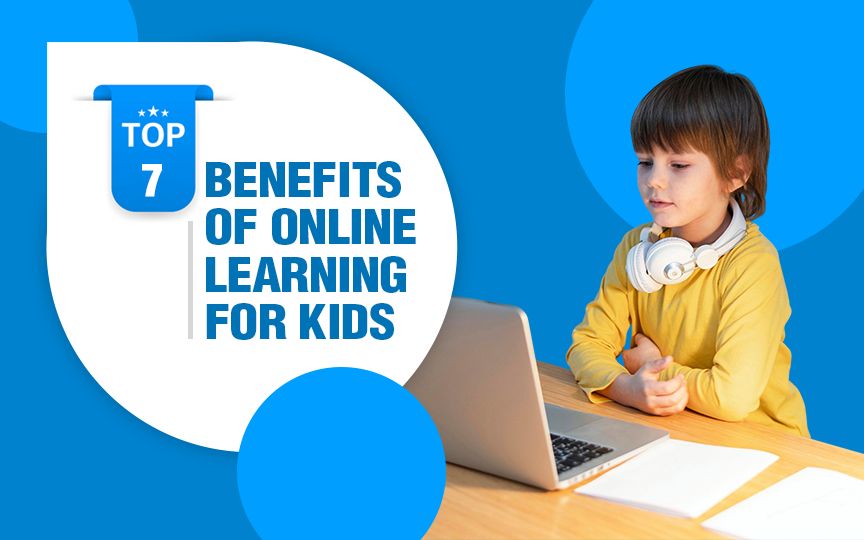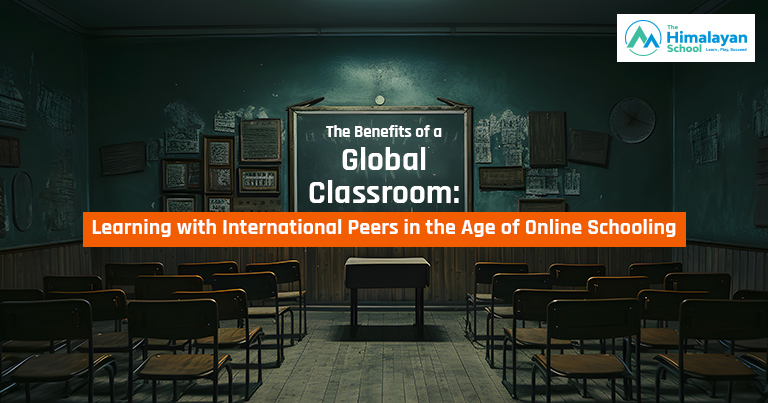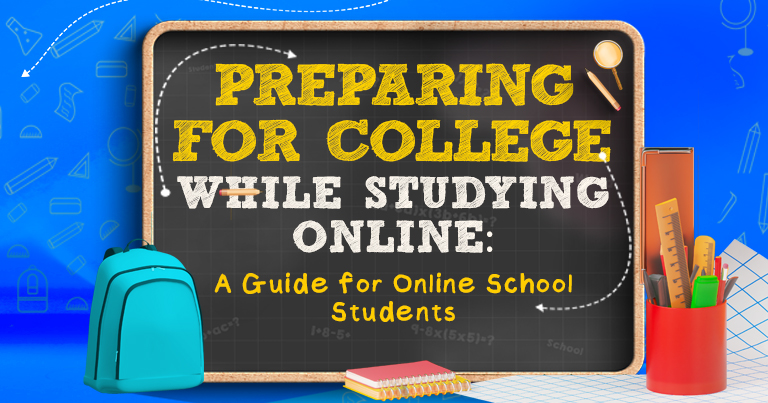Top 7 Benefits of Online Learning for Kids
Students who are enrolled in homeschooling are likely to grasp greater long-term retention of knowledge in a self-paced learning environment. Research shows that homeschooling offers a safer option for kids and prepares them with life skills. There are several benefits of online learning vs. traditional learning, differentiating with digital literacy and focus on rote learning. With the advancement in technology, catering to the learning needs of today’s generation is possible with online education.
In this blog, you will learn about the benefits of online learning to shape kids’ learning ability and develop understanding to achieve your goals. Students with virtual learning are more adaptive and dedicated, and easily learn time management. With a dedicated approach, pre-scheduled classes also help parents to support their kids and pay attention to occupy them with the mentor-led direction for their learning.
Why Online Schooling Is Best for Early Education?
(i) Personalized Learning Option: Every kid has a different style of learning that requires self-paced learning. Students with short attention spans have limited ability to learn about peers and attentively focus on class subjects to gain knowledge. In case students missed the online live class, they have options for accessing the recorded session for learning and revision as well.
(ii) Flexibility to Learn: With the convenient space of your home, guiding kids to attend the classes, and with LMS access and recorded classes, can help them to revise the taught lessons. Students do not need to prepare with school dress and school bags; they simply need a notebook and the required stationery to attend the classes as instructed by educators.
(iii) Access to a Wide Range of Learning Resources: Online schooling offers academic lessons as well as skill-based lessons such as coding, foreign languages, and STEM education with multimedia content to make learning engaging and suitable for various learning styles. Some of the online schools also offer special education with trained educators to provide education to all. With nested applications on the LMS platform, students can practice submitting assignments and receiving feedback to check their performance to improve and enhance their knowledge.
(iv) Development of Digital & Technical Skills: A learning management system is a platform where students can access the learning resources and class links to attend the live classes, re-watch the recorded class videos, and use class notes to write assignments and submit them. Along with this, students will get suggestions for certain applications to improve their learning. The key focus of homeschooling is to develop kids’ understanding of the ethical use of digital and technical skills.
(v) Independent Learning: Even with the guidance and support of teachers and parents, kids can attend their sessions and have access to the learning resources to follow the instructions and complete the tasks without the presence of their parents. This can enhance their time management skills, self-motivation to finish a class or assignments, and responsibility to follow the routine to attend the classes on time. Students can learn to access the LMS platform by remembering their registration number and login password shared by teachers to click on recorded classes and also access nested applications to practice, such as coding and video making.
(vi) Elimination of Geographic Barriers & Inclusivity: Students living in metro cities and even in tier 2 to tier 4 cities and interstate regions can access high-quality education with location freedom. The learning resources are available online and only require internet connectivity and gadgets to study at home, with suggested stationery by ICT educators. Students can access the MS to learn about the online scheduled classes, and even meeting essentials are sent via email and WhatsApp to inform parents about the class requisites.
(vii) Engagement via Multimedia & Interactive Learning: Online platforms can use engaging tools such as games, videos, and quizzes with interactive animated cartoons to motivate kids to learn and answer to complete the levels with online coins and star benefits. This helps kids in active learning and learning with fun options. Students will also be aware of accessing the application with the guidance suggested by the application, with directional arrows and other navigation signs, to complete the levels and learn effectively.
(a) Better Communication and Collaboration: Online education helps kids to express their ideas and improve communication skills with less distraction or fear of judgment. Engaging with peers and teachers virtually helps kids to make confident communication. Online education provides a safer and more parent-controlled environment for learners to enhance their decision-making abilities.
Conclusion
Online schooling helps kids turn their screen hours into productive learning and boosts their focus to learn with interactive, kid-friendly platforms. With animated chapters on suggested applications and hands-on activities with hybrid learning centers, kids develop creative skills and build knowledge retention effectively.







